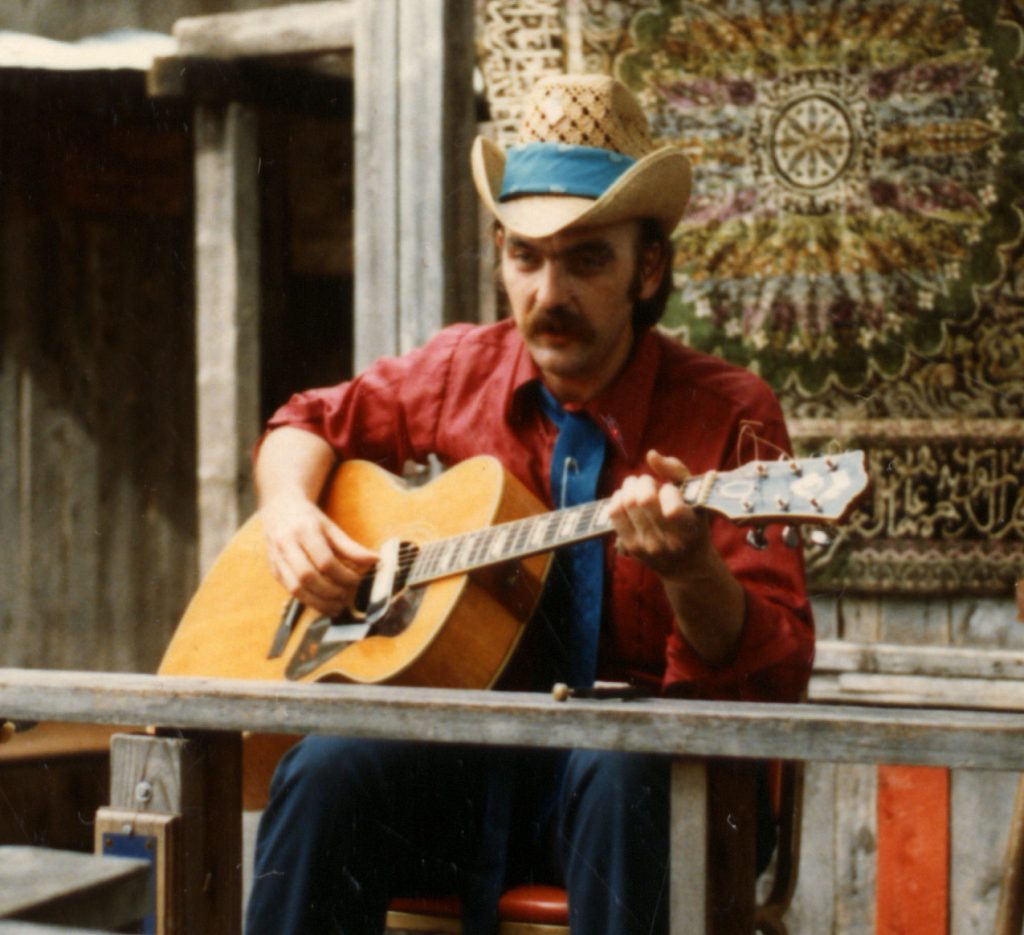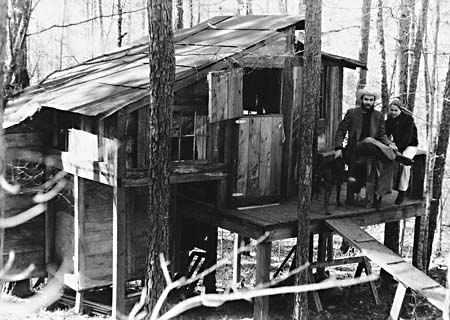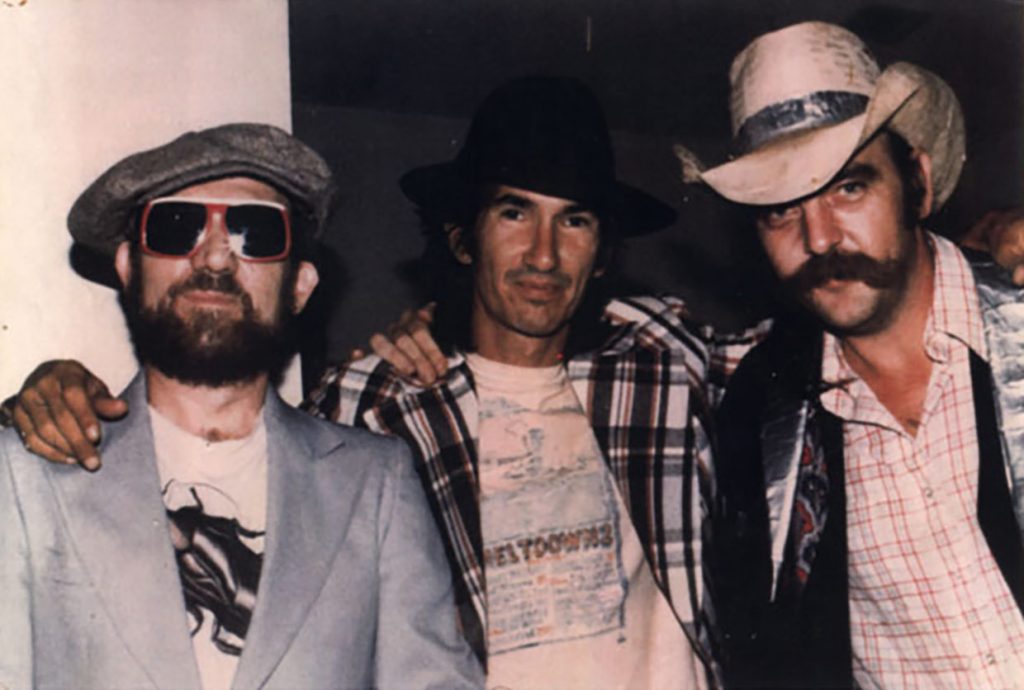Tori: Welcome to Texan Music True Crime, the podcast where we talk about the stories and lives of musicians.
Tori: I have received some feedback from listeners/readers like you to do a session on Blaze Foley. Now, there was not a lot of information about Blaze.

Tori: Born Michael David Fuller in Malvern, Arkansas on December 18 1949. It is unknown when he moved to San Antonio Texas. In his youth, he was a member of “The Singing Fuller Family” this likely was the birthplace of his musical talent. The band was a gospel band, made up of Foley, his mom, and his siblings.
Tori: As a teenager, Blaze came to the conclusion that he wanted to go by a stage name. He decided on Blaze Foley, after two of his favorite artists. It is said that he worked and lived in Memphis, Tennessee before moving to Atlanta, Georgia. Come the 70’s, he was working at this place called the Banning Mill as a rhythmic guitar player for the house band. (Rolling Stones).
Tori: According to a Rolling Stone’s article I found, the Banning Mill is “A converted yarn mill populated by local hippies, actors, musicians and others…” The article goes on to tell the story of Foley meeting the love of his life, Rosen, at the Banning Mill.

Tori: Rolling Stone also tells the story of how Foley met John Prine. Foley and Prine were “Backstage at the Great Southeast Music Hall in Atlanta… but Foley was too shy about his own songwriting to mention it to the seasoned songwriter… In 2005, Prine’s cover of Foley’s “Clay Pigeons,” appeared on his Grammy-winning Fair and Square LP.”
Tori: After Blaze met John, he moved around all throughout the country. Throughout this period of travel, Blaze began the long road down self-sabotage. Personally, I feel like this is something many performers eventually do. Feeling as if they do not deserve the life they’ve worked so hard for, they begin to drown in their vices, and sometimes this leads to a very bad ending. The way he self-sabotaged was with alcohol. In 1977, Blaze wrote one of his more popular songs called “If I Could Only Fly”. This song would get Blaze to travel back to Texas and open shows for Gurf Morlix. While opening these shows, Foley was eventually given a deal with Zephyr Records and officially released “If I Could Only Fly”.
Tori: This was the song that kick-started Blaze’s career, and I’m sure that after hearing it you can understand why. While he was performing in New York, he met someone by the name of Townes Van Zandt. The two became close friends, with Townes really looking up to and aspiring to be like Blaze.

Tori: Now that we know a little more about Blaze’s career, let’s get into how it unfortunately ended. Blaze was known to couch hop. He never had a house of his own, but he was actually okay with that, as he preferred living and hanging with people instead of the grounding of a home address. However, he did somewhat settle in South Austin, and became good friends with Concho January. They lived near each other and sometimes Blaze would go to Concho’s house and play music for him. Blaze was not a fan of how Concho’s son would treat his father. Concho’s son, Carey, spent his life in and out of jail. Carey and Blaze would go on to have a rough relationship. To the point that police were once called because Blaze hit Carey in the back of the head with an axe. Luckily it was not the sharp end and did not do a lot of damage. Blaze was very intoxicated during the fight and was arrested by the police. Blaze would go on to be told to attend AA meetings to stay sober. It is said that Blaze stayed sober for a little bit. But during the night of February 1st 1989, he was not doing well at all. Blaze was traveling all throughout South Austin drinking and hanging out with friends. He had one of his friends drop him off at Concho’s house around 5am. Ever since the fight with Carey, Blaze would have to ask before showing up. At Concho’s house, there was Blaze, Concho, Concho’s friend and Carey, who was in his bedroom.
Tori: Concho, Blaze and Concho’s friend were having a nice time hanging out together, when Carey came out of his room. Carey and Blaze got into an argument, although it is unclear about what. Next thing that happened, Carey pulled out a gun and shot Blaze. I was able to find a police report from when they interviewed Concho right after it happened. In the report, Concho says how Carey shot Blaze for no reason and ran out of the house. He also goes on to say how he thinks his son is crazy and has a very bad temper. I think this piece is very interesting and shows a lot of detail to what had happened the night Blaze died.

Tori: There are conflicting reports on whether or not Blaze died instantaneously Some articles said that right before he passed, he told the police that Carey did it. However, in these articles, it also states that Carey was in the house. For me, I would like to believe Concho’s report since he was an eyewitness. As you can imagine, Carey was soon taken into custody and arrested for Blaze’s murder. Eventually there was a trial for the murder, and it’s said that Concho was a witness for the state and testified against his own son. There was not a lot of information on the trial that I could find. In another article, it states that “The jury deliberated just over two hours before finding Carey January not guilty for first-degree murder by reason of self-defense.”
Tori: Now I know what you may be thinking: “How was he found not guilty?” Well, there was an eye witness that proves he was the murderer. I am not completely sure how he was not found guilty but an article states “The elder January, whom defense attorneys dismissed as “an old fool” and “the world’s most reliable drunk”…”. Maybe the jury believed what the defense attorney’s words.
Tori: Unfortunately, Blaze was not the wealthiest of men, so there were issues when it came to covering his funeral costs. But Blaze recorded a cassette before he died, and had planned to give the profit to a charity that helps the homeless. But his friends decided the money should go to cover his funeral costs. They even went on to record his music and release it for him.
Tori: While it’s always terrible to see such talented people become lost before they have a chance to really make an impact, Foley’s music lives on in his memory, allowing us to continue to enjoy it to the fullest. Unfortunately, this is a similar story for many Texan Musicians, and it is certainly not the last…. Until next time, with Texan Music True Crime.
Works Cited
Betts, Stephen L. “Who Was Blaze Foley: Inside the Life of Enigmatic Texas Songwriter.” Rolling Stone, 31 Aug. 2018, www.rollingstone.com/music/music-country/blaze-foley-movie-biopic-songwriter-ethan-hawke-718036/.
“Blaze Foley: Killing of a Songwriter.” MichaelCorcoran.net, 26 Jan. 2021, www.michaelcorcoran.net/blaze-foley-killing-of-a-songwriter/.
“Images.” Blaze Foley, 22 Nov. 2017, www.blazefoley.com/images/. Accessed 29 Nov. 2021.
“Music.” Blaze Foley, 30 Oct. 2020, www.blazefoley.com/music/. Accessed 29 Nov. 2021.

